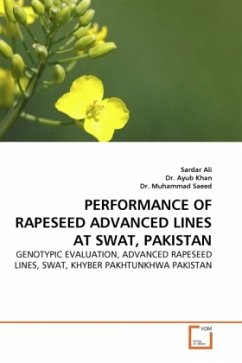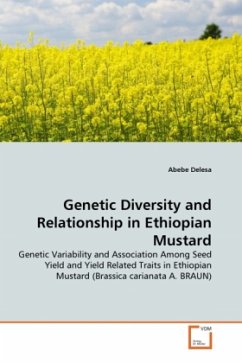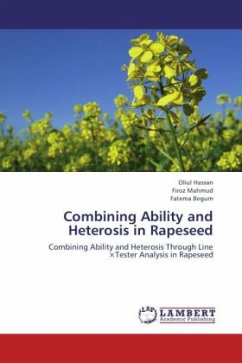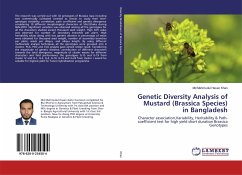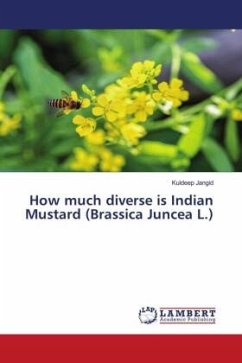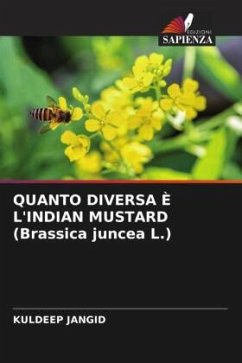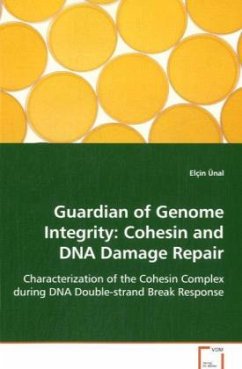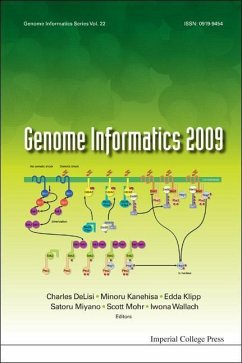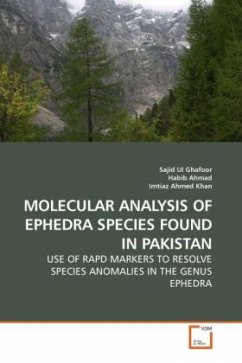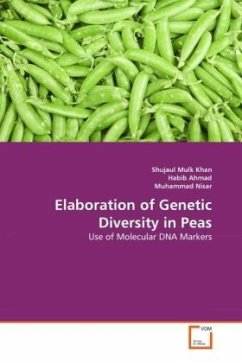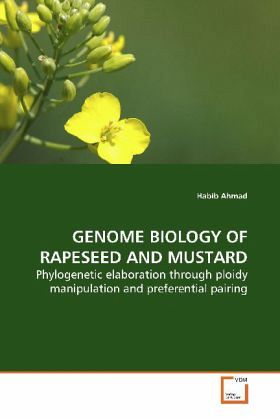
GENOME BIOLOGY OF RAPESEED AND MUSTARD
Phylogenetic elaboration through ploidy manipulation and preferential pairing
Versandkostenfrei!
Versandfertig in 6-10 Tagen
32,99 €
inkl. MwSt.

PAYBACK Punkte
16 °P sammeln!
Rapeseed and mustard are multipurpose crops traditionally cultivated in almost all of the agroecosystems of the world. All parts of the rapeseed and mustard plants can be used as food, fodder, feed, salad, condiment or traditional medicine etc. Genetic improvement of these crops has played an important role in livelihood improvement of people of the developed world. Mustard seed is nowadays viewed in the prism of biofuel, which needs proper genetic manipulation. This book is an outcome of a PhD project of University of the Punjab, Lahore. It explores genome relationship of the cultivated oilse...
Rapeseed and mustard are multipurpose crops
traditionally cultivated in almost all of the
agroecosystems of the world. All parts of the
rapeseed and mustard plants can be used as food,
fodder, feed, salad, condiment or traditional
medicine etc. Genetic improvement of these crops
has played an important role in livelihood
improvement of people of the developed world.
Mustard seed is nowadays viewed in the prism of
biofuel, which needs proper genetic manipulation.
This book is an outcome of a PhD project of
University of the Punjab, Lahore. It explores genome
relationship of the cultivated oilseed of the genus
Brassica. The tools employed for elucidating genome
biology included the results obtained from
interspecific hybridization, preferential pairing
within and among the induced auto and amphiploid
sporocytes. Depending upon the crossibility
patterns, genomic interactions at amphiploid and
autotetraploid levels, and chromosomal behavior
during diploidization of polyploids; the origin of
rapeseed and mustard is elaborated.
traditionally cultivated in almost all of the
agroecosystems of the world. All parts of the
rapeseed and mustard plants can be used as food,
fodder, feed, salad, condiment or traditional
medicine etc. Genetic improvement of these crops
has played an important role in livelihood
improvement of people of the developed world.
Mustard seed is nowadays viewed in the prism of
biofuel, which needs proper genetic manipulation.
This book is an outcome of a PhD project of
University of the Punjab, Lahore. It explores genome
relationship of the cultivated oilseed of the genus
Brassica. The tools employed for elucidating genome
biology included the results obtained from
interspecific hybridization, preferential pairing
within and among the induced auto and amphiploid
sporocytes. Depending upon the crossibility
patterns, genomic interactions at amphiploid and
autotetraploid levels, and chromosomal behavior
during diploidization of polyploids; the origin of
rapeseed and mustard is elaborated.



